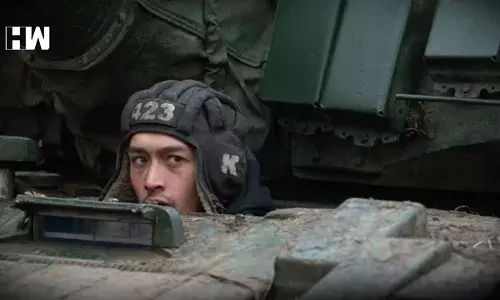Citing an official in the Pentagon, the New York Times has reported that Russian soldiers fighting the war in Ukraine are in disarray and crying as they are asked to “fire at everyone”. These soldiers are sabotaging their vehicles to avoid fighting, the newspaper further said.
A significant number of the Russian troops are young who are poorly trained and not prepared for a full-scale war, a senior Pentagon official has told the NYT. The official further said that Russian troops are also suffering from low morale and shortage of resources, including food and fuel.
The NYT report said that these soldiers have deliberately punched holes in their vehicles, just to avoid the combat.
The report revealed that the assessment is presumably based on the statements given by captured Russian soldiers, and is the reason why the 40-mile convoy of tanks and armoured vehicles outside Kyiv has been moving slowly in the past few days.
However, Russian commanders leading the armoured column may be rethinking their battle plans to push forward, and encircle and capture the Ukrainian capital, the Pentagon official cited by NYT said.
By releasing intercepted radio messages, a British intelligence agency has also backed up the claims made in NYT.
Published by Daily Mail, the voice recordings reveal that Russian troops are refusing to obey their command orders to shell Ukrainian towns.
Intelligence firm ShadowBreak, since the Ukraine war invasion began, has released 24 hour of voice recordings on Twitter, and said it “displays a disturbing lack of coordination between units, sometimes even firing at each other”.
In one such tense exchange between a Russian soldier on the ground and his colleague command centre, the soldier is heard telling the latter that they cannot use artillery on an area until civilians have left.
As an independent media platform, we do not take advertisements from governments and corporate houses. It is you, our readers, who have supported us on our journey to do honest and unbiased journalism. Please contribute, so that we can continue to do the same in future.

